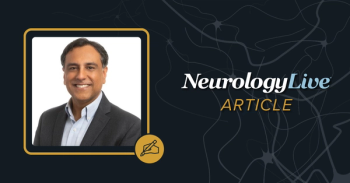
Suicide Prevention in Neurodegenerative Disease
Compliance, an obstacle in depression treatment for all patients, can be especially difficult for patients with dementia.
Depression is a frequently observed and well-documented effect of dementia and of movement disorders including Parkinson. The risk of suicide among older patients who live with a diagnosis of one or more of these neurodegenerative diseases is not generally a major area of concern among neurologists. Treatment for depression is normally geared towards symptomatic relief with an aim towards improved quality of life. Effective treatment of depression in patients with neurodegenerative diseases is also an important tool for giving patients the motivation to care about and participate in self-care.
Yet, depression among patients who have neurodegenerative disease such as Parkinson, Lewy body dementia, and Alzheimer is a recognized and often untreated reality. The highly publicized suicide of famed comedian and actor Robin Williams put these complex neuropsychological interactions in the forefront, at least as far as the public is concerned. When such highly publicized events occur, it can be easier for doctors to pre-emptively address the risks of depression with patients and with family members who may be more interested and willing to follow up on preventative strategies due to the increased public awareness.
Compliance is one of the obstacles to effective medical treatment for depression among all patients. But compliance is a particularly troublesome issue for patients who suffer from dementia, yet remain highly opinionated. Medication side effects, the stigma of depression, and the hassle of taking medications all combine to interfere with compliance in filling and taking antidepressant prescriptions.
The idea of an interventional therapy for depression has several attractive features, including increased compliance. When a patient has a tendency to waver between willingness and unwillingness to acknowledge depression and accept medical treatment, a procedure has a chance of being scheduled during a ‘window’ when the patient is in the mood for treatment. Safety and lack of systemic side effects, as well as the relative infrequency of treatment compared with pills may make interventional therapy suitable for the older population.
Electroconvulsive therapy is the application of electric shocks severe enough to trigger a seizure. Electroconvulsive therapy has gone in and out of favor as a mode of treatment for psychiatric disorders, sometimes viewed as inhumane, and sometimes viewed as a means to longer lasting relief than that provided by daily pills for patients afflicted with psychiatric disorders. Neuromodulation is a milder form of applying electric shocks of subconvulsive intensity with the same objective of diminishing the symptoms of depression. The efficacy of electroconvulsive shock therapy and neuromodulation therapy is not well established, but after over 50 years of data, they are both believed to be safe. However, the data is sparse and studies do not measure outcomes or safety using consistent benchmarks.
The reality of suicide among the population afflicted with neurodegenerative disease is not a frequently discussed issue. It may be that as beliefs and cultural norms change among different generations, older individuals become more or less likely to attempt or commit suicide. The well-established but not thoroughly understood link between neurodegenerative diseases and depression forces the neurologist to play a role in prevention by identifying patients at risk.
References:
Huang P, et al.
Riva-Posse P, et al.
Newsletter
Keep your finger on the pulse of neurology—subscribe to NeurologyLive for expert interviews, new data, and breakthrough treatment updates.









